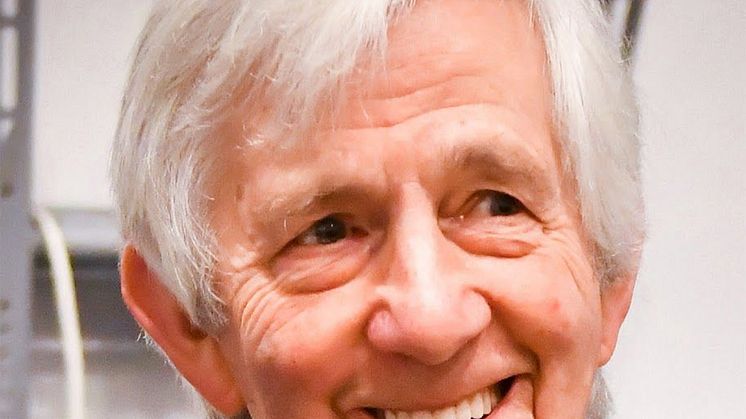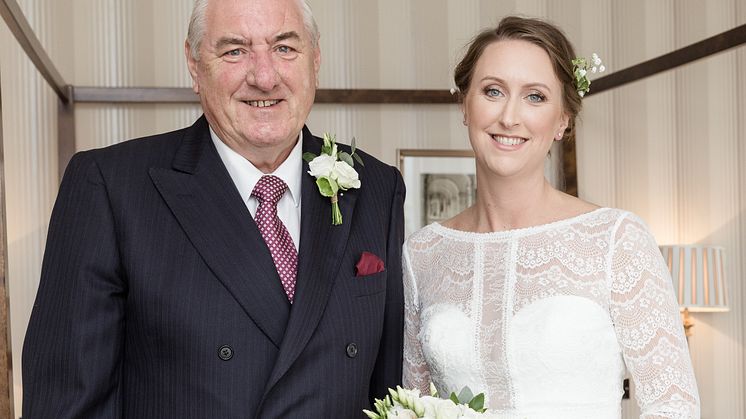
Press release -
Stroke patients defy the odds, despite being given no hope
More than four out of five (85%) stroke survivors have reported being told that their recoveries would be limited to within the first year after their stroke according to a survey(i) conducted by the Stroke Association pre-Covid-19.
Stroke survivors also said as a result, this has left them despairing about their recovery. When told about the timing of their recovery:
- Almost all stroke survivors reported feeling low (91%), worried (91%) and afraid (90%)
- Over three quarters (77%) of stroke survivors felt angry
- One in five (20%) stroke survivors did not feel any hope at all
- The charity is releasing these new findings as part of its Hope After Stroke campaign to highlight the importance that hope plays in people’s recovery. A stroke is a devastating brain attack. It has a massive and sudden impact affecting people physically and emotionally. There is still a lot that is unknown about the brain or the way it recovers, however it can adapt and with the right support stroke survivors can go on to recover even years after their stroke.
More than 1,000 stroke survivors were surveyed. Other findings revealed:
- More than one in ten (15%) people were told that their recovery would be as good as it gets when they left hospital
- One in four (24%) that most of their recovery would be limited to the first two to three months after leaving hospital
- One in four (26%) that most of their recovery would take place within the first six months after leaving hospital
- One in five (19%) that most of their recovery would only take place within the first 12 months after leaving hospital
- Only one in ten (9%) were told that their recovery would continue years after leaving hospital.
The survey was carried out in August 2019 however, the charity fears the situation is likely to have worsened over lockdown.
Juliet Bouverie, Chief Executive of the Stroke Association said “It’s shocking that so many people are told that there is a time limit to their recovery. It can be demotivating and soul destroying, when we know evidence is to the contrary. It makes our job harder but even more important.
“We know that stroke survivors cling onto even the smallest glimmer of hope. This is what powers them on to achieve what many thought would be impossible. I’ve heard so many stories of remarkable people making recoveries even 20 years after their stroke. This survey was conducted before the pandemic and while shocking then, it’s likely to have become worse as people’s fears of coronavirus and not wanting to burden the NHS overtake their hopes. Hope is the bedrock to rebuilding lives.”
Former social worker Bill Howson, 77 from Ilkley, had a life changing stroke in 2014. He was at home watching TV when he felt his right side go limp and lost his voice. After being taken to Leeds General Infirmary by ambulance, Bill spent four weeks in hospital undergoing physical rehab but his speech did not recover. He was also tube fed because his ability to swallow was severely affected.
Bill’s GP told him he has never seen anyone like him in his long career. Bill’s stroke left him with apraxia of speech, which means he cannot move muscles in the correct order and sequence to make the sounds needed for clear speech. He also has mild aphasia, a communication disability after stroke which sees Bill struggle to find the right words or start a sentence when writing.
Bill said: “It wasn’t for some time that I realised that I had had a stroke. I wasn’t given any form of timing for my recovery. I wasn’t given an idea of my prognosis."
Now Bill communicates mainly via iPad and other techniques including a white board and some sign language. He is able to write, saying: “Physically, I am independent. I have no physical disability. I drive, I travel alone. I am completely independent, yet I have no voice or speech. My speech has not improved since my stroke, although my communication techniques have. I am able to say ‘No’.
“I have been to Speech and Language Therapists and even a six month intensive course at the Tavistock Centre at the University of Newcastle. I took it upon myself to make my disability work for me and others. I frequently use my online dictionary and thesaurus. I have a list of words that I have had difficulty spelling in the past, to refer to. I have one thing to rely on; the spoken word I understand. I read audiobooks which I enjoy.
“I started writing about my experience in hospital and my life in general. I was invited to write a booklet by my local church about my experience of losing my speech. I have also enjoyed giving a PowerPoint presentation to students of Speech and Language at Newcastle University with words of guidance. I wasn’t given any idea from which I could find hope. I found my hope was my responsibility which I found in different forms of communication methods and writing about it to convey to others.”
Marion Walker MBE, Emeritus Professor of Stroke Rehabilitation at the University of Nottingham, said: “Stroke occurs in an instant, leaving stroke survivors and their loved ones shocked, bewildered and frightened about what the future may hold. Sadly, in many cases individuals will have suffered some physical and emotional impact from the stroke. The quickest recovery takes place in the days and weeks after a stroke. But recovery can continue for months and years after a stroke. Whilst it is important to be honest with stroke survivors, we need to ensure that we are presenting them with the facts to ensure they maximise their recovery. Despair may seem like a natural reaction to the stroke but it is so important that we as professionals work with our patients to show them that a meaningful and full life is possible. Keeping a positive attitude will most definitely enhance the recovery journey.
“All too often we hear of individuals being discharged from hospital into a vacuum of care, knowing little of the available services or how to access them. I know how much pressure our health care system is under with Covid-19, and that’s why it’s important that charities like the Stroke Association can be there for everyone affected by stroke.”
Juliet continues: “Rebuilding lives after stroke is a team effort. It takes the determination of stroke survivors and carers, the generosity of supporters and the dedication of the healthcare and research communities. We connect people affected by stroke with the stroke community so they can see the possibilities for recovery. People report that our support services have been a lifeline for their recovery. Whether it’s the Stroke Helpline, My Stroke Guide or our recently launched Here for You service, we’re determined to be there for the people who need us most.
“But we aren’t able to reach everyone who has been affected by stroke and even our current offering is under threat. The pandemic and local surges have put even more strain on how we can deliver against that aim and has impacted how we can generate income to continue to be there for stroke survivors and their families. We need everyone to get behind our campaign and help us raise not only awareness, but the vital funds. We can’t do it alone. You can volunteer, donate or fundraise for us. No one ever plans for a stroke but you can help ensure that we’ll be here when people need us most.”
For more information about stroke and the vital role hope plays in rebuilding lives visit www.stroke.org.uk/hope
-Ends-
For more information contact Vicki Hall, PR Officer on 0161 742 7478 or email vicki.hall@stroke.org.uk
Notes to Editors
- (i)Statistics based on a 4Media Relations survey of 1,001 stroke survivors conducted August 2019.
- Stroke strikes every five minutes in the UK and it changes lives in an instant.
- The Stroke Association is a charity working across the UK to support people to rebuild their lives after stroke. We believe that everyone deserves to live the best life they can after stroke. From local support services and groups, to online information and support, anyone affected by stroke can visit stroke.org.uk or call our dedicated Stroke Helpline on 0303 3033 100 to find out about support available locally.
- Our specialist support, research and campaigning are only possible with the courage and determination of the stroke community and the generosity of our supporters. With more donations and support, we can help rebuild even more lives.
- You can follow us on Twitter, Facebook and Instagram. #RebuildingLives
Topics
Categories
- Stroke strikes every five minutes in the UK and it changes lives in an instant.
- The Stroke Association is a charity working across the UK to support people to rebuild their lives after stroke. We believe that everyone deserves to live the best life they can after stroke. From local support services and groups, to online information and support, anyone affected by stroke can visit stroke.org.uk or call our dedicated Stroke Helpline on 0303 3033 100 to find out about support available locally.
- Our specialist support, research and campaigning are only possible with the courage and determination of the stroke community and the generosity of our supporters. With more donations and support, we can help rebuild even more lives.
- You can follow us on Twitter, Facebook and Instagram.


